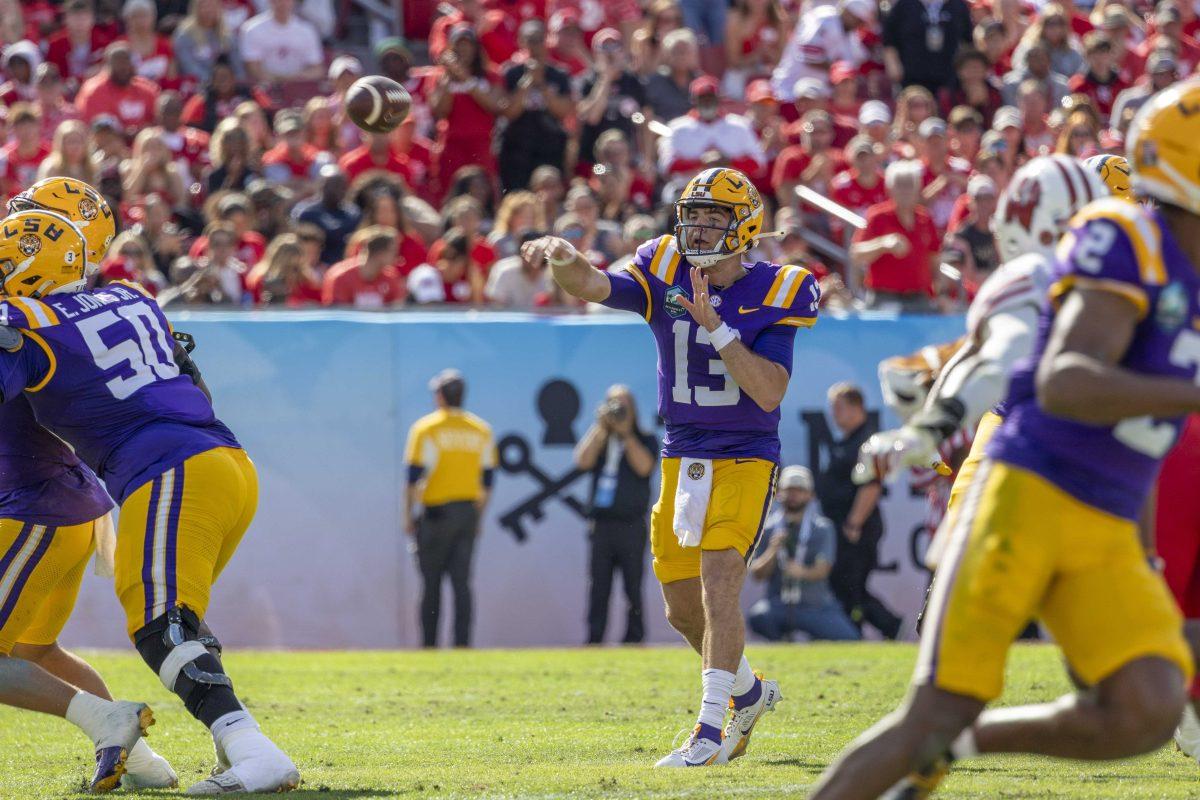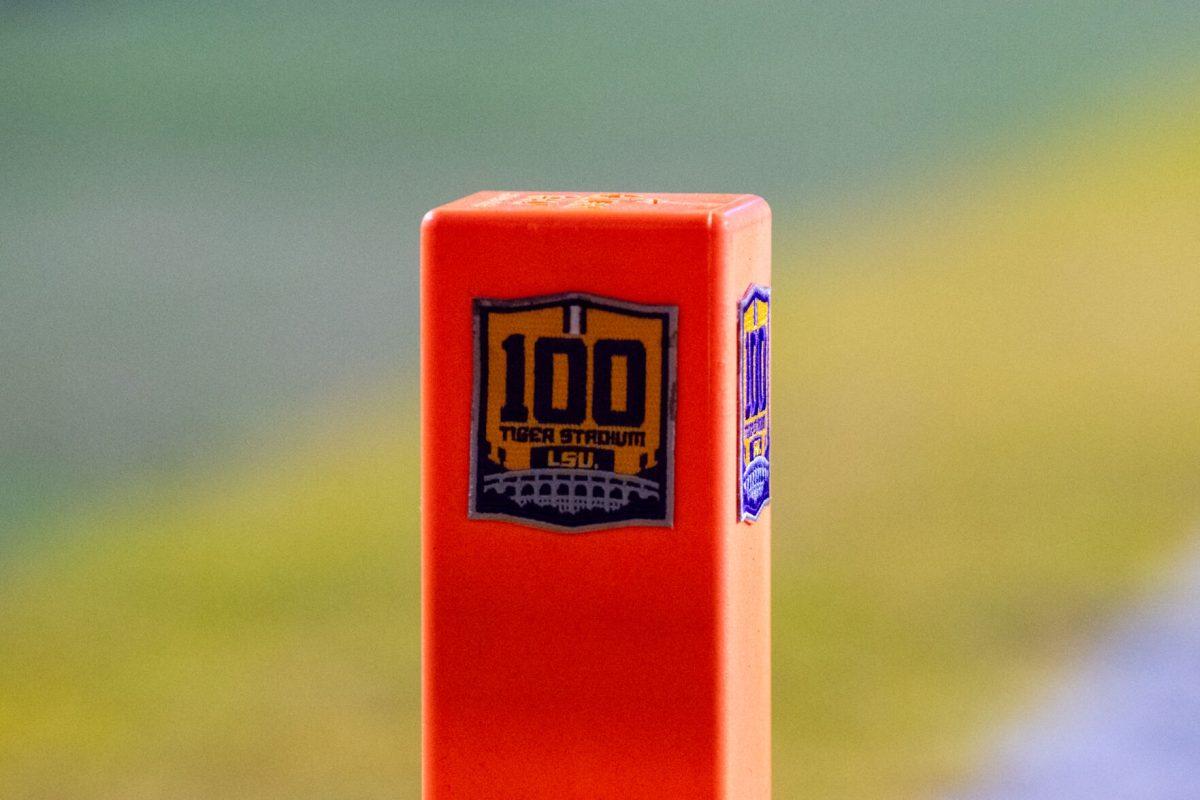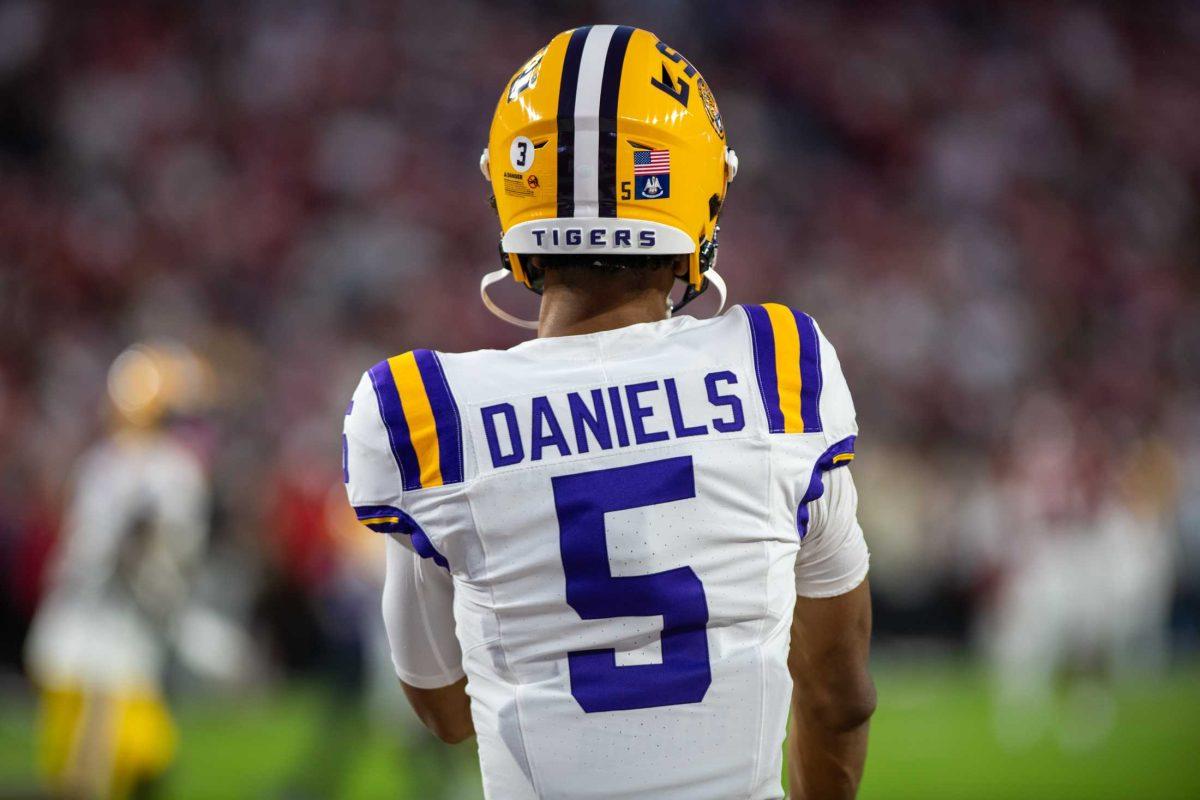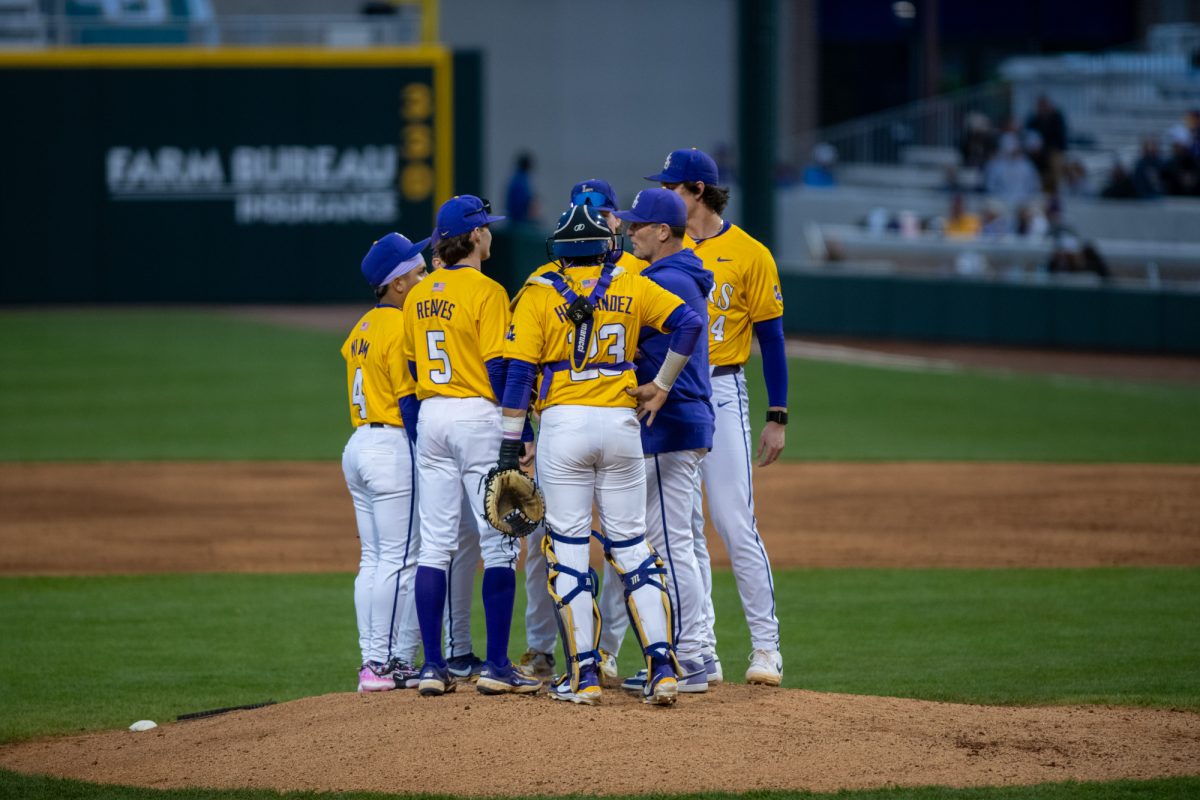Garrett Nussmeier spent the last three spring practice cycles either as the understudy or in fierce competition for the starting job. Now, he enters his senior year as the new face of the offense that is coming off one of its best seasons ever.
Expectations are high for any new quarterback, but there’s hardly any bigger pressure than replacing a Heisman Trophy-winning quarterback who led the best offense in college football.
That’s what Nussmeier is tasked with in 2024, but despite the pressure coming with his new role, his mindset hasn’t changed.
“I’ve just tried to do my job and do what I feel like I’ve always been taught to do as far as leadership goes,” Nussmeier said.
Despite only having one start in his college career, Nussmeier returns to the offense in 2024 as one of the group’s most experienced players. He’s one of a handful of players who have been with Brian Kelly since he arrived at LSU, allowing him to understand the expectations within the program.
Kelly calls him a “natural leader,” and someone players listened to even before he became a starter.
“He has the ears of everybody on the offense,” Kelly said. “He backs up what he does by deed. If he says he’s going to do something, he does it and he holds others accountable.”
Nussmeier is one of the examples of how LSU is becoming what Kelly describes as a “player-led” team. That starts with putting an emphasis on the smaller details that Kelly has preached since arriving at LSU.
Whether it’s organizing throwing sessions with the receivers or watching film together, Nussmeier said he’s using his experience as a starting quarterback during his career before college to understand how he needs to play the role of the starting quarterback.
Another facet of his leadership is setting the expectation within the locker room.
Nussmeier told reporters that 10 wins wasn’t the team’s goal anymore, but made it clear that the goal isn’t strictly tied to results.
“I’m not sitting here saying we have to win a national championship or we bust. What I’m saying is that we have to start building a championship culture and the thought of 10 wins is not enough in our minds and it starts with the little things that we’re doing now,” Nussmeier said.
One of Nussmeier’s traits the Kelly complimented was his ability to hold teammates accountable. An illustration of that is his role as one of LSU’s SWAT team leaders.
SWAT teams, which stands for spring/summer workout accountability teams, are groups led by a captain to encourage habits that build accountability and discipline. Each team can earn points by doing little things such as being on time or completing daily tasks.
Kelly shared that Nussmeier’s team is often one of the most productive SWAT teams in terms of scoring points.
“He’s a guy that backs up what he does and guys follow guys that mean what they say and do it,” Kelly said.
On the field, LSU will need Nussmeier’s leadership.
Not only are the Tigers replacing probably their second-best quarterback of all time, but leadership at the top is changing too. Broyles Award finalist offensive coordinator Mike Denbrock left LSU for Notre Dame, making way for a new play caller.
Joe Sloan and Cortez Hankton were promoted to co-offensive coordinators, two coaches that Nussmeier has already worked with for two years.
LSU also lost its two most productive receivers who will likely both be first-round draft picks. Malik Nabers and Brian Thomas Jr. accounted for over half of LSU’s total completions last season.
LSU brought in transfers Zavion Thomas and CJ Daniels to fill those holes on the depth chart, but asking them to give the same production is a tall order.
Despite the changes in coaching and personnel, Nussmeier says the offense remains largely the same.
“There is a lot of new things and a lot of different aspects into our offense… But who we are as an offense and who we are as a team I don’t think necessarily will change that much,” Nussmeier said.








